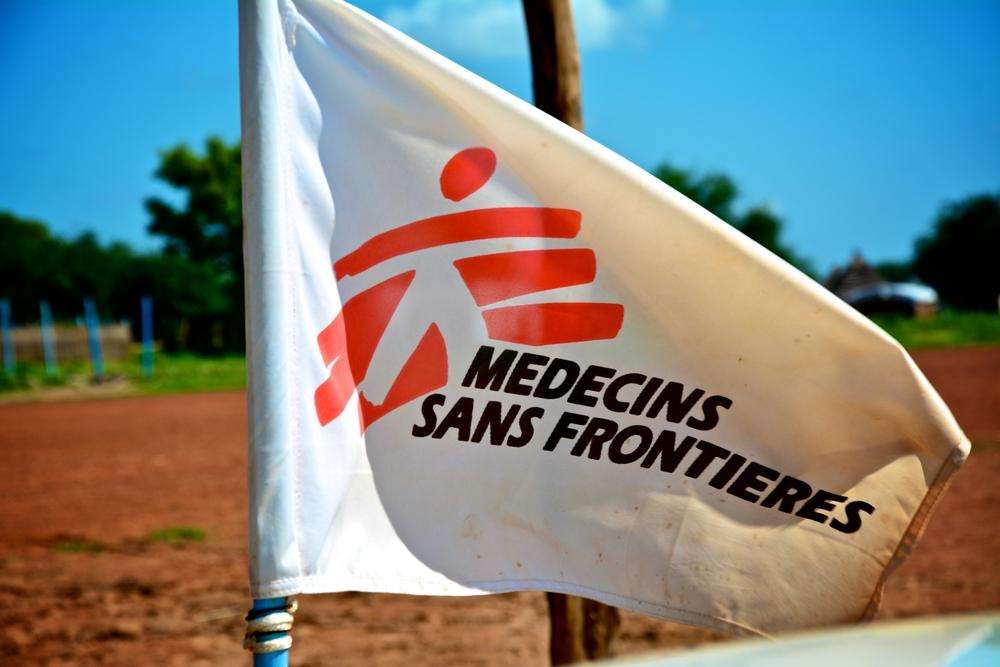An acute humanitarian emergency is unfolding in Ethiopia's Somali region, with malnutrition reaching alarming levels, the international medical organization Doctors Without Borders/Médecins Sans Frontières (MSF) said today.
MSF teams in the region’s Doolo Zone report 67 deaths of malnourished children so far in June.
"The numbers of young children with severe acute malnutrition in Doolo Zone are the highest our teams have seen in the area in the 10 years we have worked in the region," said Saskia van der Kam, MSF nutritional adviser.
MSF teams, working alongside Ethiopian health authorities, have set up 27 outpatient therapeutic feeding centers and four inpatient therapeutic feeding centers to treat children with severe malnutrition. In the locations of Danod, Lehel-Yucub, Wardher, Galadi, and Daratole, MSF teams have treated 6,136 children under five for severe acute malnutrition since January. By comparison, MSF treated 491 children in these areas for severe acute malnutrition during the same period in 2016—a more than tenfold increase.
In the first two weeks of June alone, 322 severely malnourished children were admitted in the four inpatient feeding centers supported by MSF. Despite all medical efforts, 51 of these children did not survive. The total number of deaths among children in June has risen to 67.
"The deaths of these children show the gravity of the situation," said van der Kam. "What we are seeing is a humanitarian emergency."
Thousands of People are Fully Dependent on External Aid
The malnutrition crisis comes in the wake of two failed rainy seasons. Many people have seen their livestock die because of the drought, which has forced them to abandon their traditional nomadic way of life. They have settled in informal camps, where they do not have enough food and safe water to survive.
"When the drought came, our animals died so we could no longer stay in the bush," said Fardausa, a local woman who brought her three-year-old granddaughter, Maida, for treatment to one of the MSF-supported therapeutic feeding centers. "I have never seen a situation like this. We had animals that gave us everything we needed. Now we have nothing and our children become sick and die."
Droughts are nothing new for people in this area. The mainly pastoralist population knows how to adapt to avoid losing as few camels and cows as possible until the next rains come. But after two failed rainy seasons in a row, many can no longer cope and are now totally dependent on external aid.
"Our teams are seeing entire communities left without milk, as most of their animals have died," said Karline Kleijer, MSF emergency program manager. "Without their animals, they no longer have a source of income or the means of transporting food and water when on the move. People are knocking on our doors begging for food."
Malnutrition Soars as Food Aid Runs Short
People in the camps have been receiving food aid and the regional government has been providing cooked meals in most of the informal camps. However, supplies of food are insufficient for the high number of displaced people in need and are now running out.
"In the last week of May, the distribution of cooked food was halted, and the monthly distribution of dry food rations was delayed, leaving large numbers of people without any food at all," Kleijer said.
More concerning, the World Food Program has warned that its supply of emergency food aid for the Somali region will run out at the end of July, leaving 1.7 million people even more vulnerable to malnutrition.
MSF Urges Donors and Other Organizations to Scale up Their Support to the Somali Region
Fearing a stark deterioration of the nutrition and humanitarian situation in the Somali region, MSF is planning to expand its emergency response to other zones, including Jarar and Nogob.
"Our teams are working with the health authorities to reach as many children as possible to provide them with therapeutic food to reduce the immediate mortality, rather than provide comprehensive care to a smaller number of children," said Kleijer. "But we shouldn't have to make such a choice. More food aid and more humanitarian organizations need to arrive in this region urgently."
MSF calls on donors to increase their support to Ethiopia to ensure that a continuous supply of food reaches people in need. Humanitarian organizations must also dispatch teams and supplies to the hardest-hit areas to prevent the crisis from escalating further.




